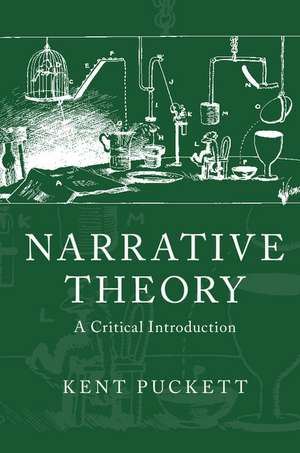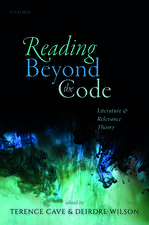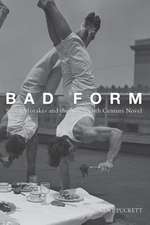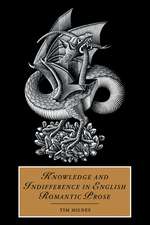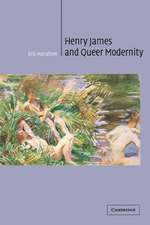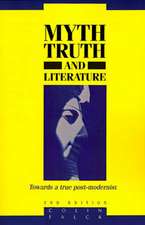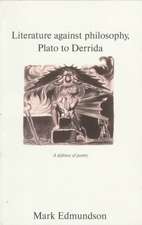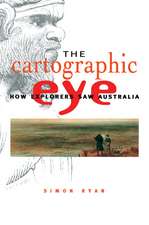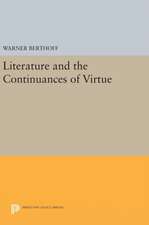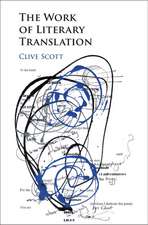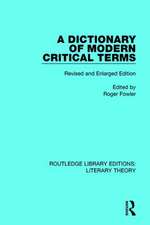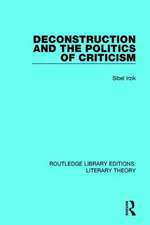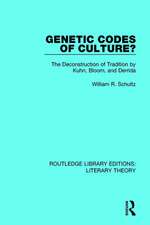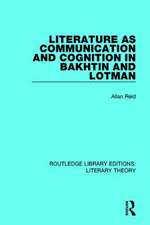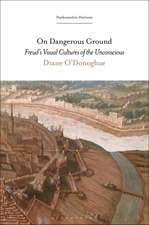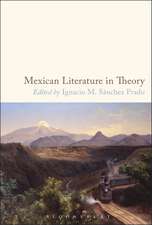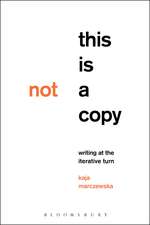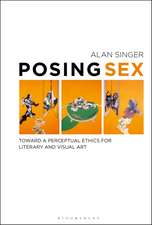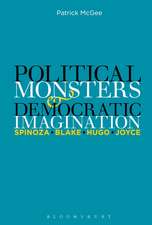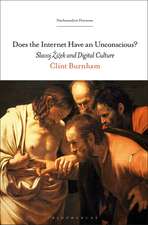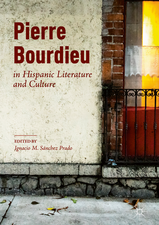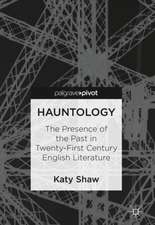Narrative Theory: A Critical Introduction
Autor Kent Pucketten Limba Engleză Paperback – 6 noi 2016
| Toate formatele și edițiile | Preț | Express |
|---|---|---|
| Paperback (1) | 227.88 lei 43-57 zile | |
| Cambridge University Press – 6 noi 2016 | 227.88 lei 43-57 zile | |
| Hardback (1) | 642.48 lei 43-57 zile | |
| Cambridge University Press – 13 noi 2016 | 642.48 lei 43-57 zile |
Preț: 227.88 lei
Nou
Puncte Express: 342
Preț estimativ în valută:
43.60€ • 45.65$ • 36.08£
43.60€ • 45.65$ • 36.08£
Carte tipărită la comandă
Livrare economică 07-21 aprilie
Preluare comenzi: 021 569.72.76
Specificații
ISBN-13: 9781107684744
ISBN-10: 1107684749
Pagini: 360
Dimensiuni: 152 x 229 x 18 mm
Greutate: 0.49 kg
Editura: Cambridge University Press
Colecția Cambridge University Press
Locul publicării:New York, United States
ISBN-10: 1107684749
Pagini: 360
Dimensiuni: 152 x 229 x 18 mm
Greutate: 0.49 kg
Editura: Cambridge University Press
Colecția Cambridge University Press
Locul publicării:New York, United States
Cuprins
1. Introduction: story/discourse; 2. Action, event, conflict: the uses of narrative in Aristotle and Hegel; 2.1. Beginning, middle, and end: Aristotle and narrative; 2.2. Tragedy, comedy, and the cunning of reason: Hegel and narrative theory; 3. Lost illusions: narrative in Marx, Nietzsche, and Freud; 3.1. First as tragedy: Karl Marx, narrative, and revolution; 3.2. Beyond story and discourse: Friedrich Nietzsche and the limits of narrative; 3.3. Narrative and its discontents: Sigmund Freud's story; 4. Epic, novel, narrative theory; 4.1. Relations stop nowhere: Henry James and the novel's narrative; 4.2. Starry maps: Georg Lukács and the comparative analysis of narrative genres; 4.3. To kill is not to refute: Mikhail Bakhtin on genre, narrative, and history; 4.4. History's scar: Erich Auerbach and narrative thinking; 5. Form, structure, narrative; 5.1. The hero leaves home: Vladimir Propp and narrative morphology; 5.2. Knight's move: Viktor Shklovsky and Russian Formalism; 5.3. Differences without positive terms: Ferdinand de Saussure and the Structuralist turn; 5.4. The elementary structures of story and discourse: Claude Lévi-Strauss and the narrative analysis of myth; 6. Narratology and narrative theory: Kristeva, Barthes, and Genette; 6.1. It is what it isn't: Julia Kristeva and Tel Quel; 6.2. Parisian gold: Roland Barthes and narrative pleasure; 6.3. The knowable is at the heart of the mysterious: Genette's narrative poetics.
Notă biografică
Descriere
Narrative Theory offers an introduction to the field's critical and philosophical approaches towards narrative throughout history.
